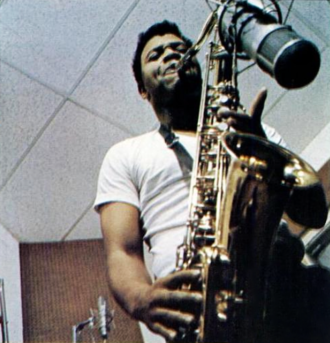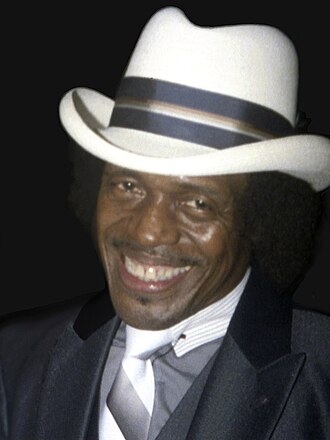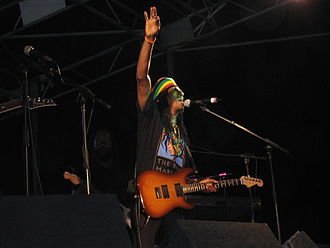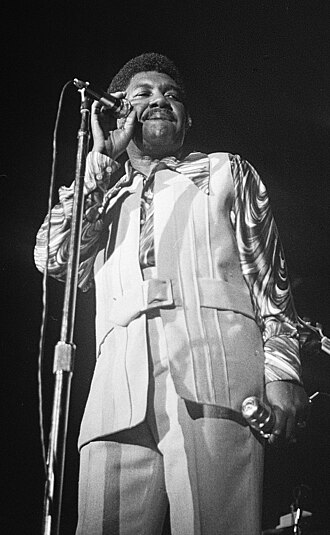Discover Your Roots
SIGN UPDiscover Your Roots
SIGN UPJunior is a male name of English origin that means "The Young" or "Child." This name is often used as a generational title, denoting a son who shares the same name as his father. In addition to its traditional meaning, Junior also has various references in popular culture, including characters in films such as "Storks" and "Problem Child," as well as music albums and sports teams. The name has also been associated with aircraft, educational stages, and legal terminology. Furthermore, it has been used as a suffix for people's names and as a title for competitive categories in sports and other disciplines. Overall, Junior is a versatile name with a rich cultural and historical significance.

Autry DeWalt Mixon Jr., professionally known as Junior Walker, was a celebrated American multi-instrumentalist and vocalist, primarily known for his exceptional saxophone skills. Born on June 14, 1931, in Blytheville, Arkansas, he later grew up in South Bend, Indiana, where he developed a passion for playing the saxophone during his high school years. Junior Walker's career took off when he formed his own band, the Jumping Jacks, in the mid-1950s, which eventually evolved into "The All Stars." The group gained recognition and success after recording for Motown's Soul imprint in 1964, producing hit tracks like "Shotgun," "(I'm a) Road Runner," and "What Does It Take (To Win Your Love)." Later, in 1979, he embarked on a solo career before re-forming The All Stars in the 1980s. Junior Walker's remarkable talent also led him to collaborate with prominent artists such as Foreigner, contributing a memorable saxophone solo on their hit song "Urgent." His legacy continued as he appeared in various projects and performances, showcasing his musical prowess. Sadly, Junior Walker passed away at the age of 64 in Battle Creek, Michigan, on November 23, 1995, leaving behind a timeless musical legacy that continues to inspire and resonate with audiences worldwide.

Junior Wells, born Amos Wells Blakemore Jr., was a celebrated American singer, harmonica player, and recording artist, best known for his iconic song "Messin' with the Kid" and the critically acclaimed 1965 album Hoodoo Man Blues. Categorized as rhythm and blues, Wells collaborated with renowned blues musicians such as Muddy Waters, Earl Hooker, and Buddy Guy. Throughout his career, he remained a prominent figure in the blues scene and even expanded his reach to rock audiences while touring with the Rolling Stones. Wells' musical journey began in his early years, learning to play the harmonica skillfully by the age of seven. He later moved to Chicago and honed his modern amplified harmonica style, making his first recordings in the 1950s. His album Hoodoo Man Blues, featuring Buddy Guy on guitar, is considered a classic blues album of the 1960s. Despite battling severe health issues, including cancer and a heart attack, Wells continued to leave a lasting impact on the music industry until his passing on January 15, 1998. His legacy lives on through his influential contributions to the blues genre.

David "Junior" Kimbrough (1930–1998) was a renowned American blues musician from Hudsonville, Mississippi. His distinctive style, characterized by mid-tempo rhythms and hypnotic melodies, made him a prime example of hill country blues. Kimbrough's music, with its polyrhythmic and repetitive qualities, drew comparisons to African music and garnered critical acclaim. His debut album, "All Night Long," produced by Robert Palmer, received widespread praise and attracted attention from music legends like U2's members, Keith Richards, and Iggy Pop. Kimbrough's influence extended beyond his music, as he opened juke joints that became cultural hubs and collaborated with other notable musicians like R.L. Burnside. In 2023, his contributions to the blues genre were recognized with an induction into the Blues Hall of Fame, solidifying his legacy as a pivotal figure in American music history.

Junior Marvin, born Donald Hanson Marvin Kerr Richards Jr. on June 22, 1949, is a Jamaican-born guitarist and singer known for his association with Bob Marley and The Wailers. He began his career as Junior Hanson with the band Hanson in 1973. Growing up in Kingston, Jamaica, Marvin moved to London, where he developed a passion for acting and music. He had the opportunity to appear in the Beatles' film Help! and later played alongside music legends like T-Bone Walker and Ike & Tina Turner in the United States. Marvin's musical journey also included collaborations with bands such as The Keef Hartley Band and Toots & the Maytals. In 1977, he met Bob Marley and officially joined The Wailers, leaving a significant mark on the reggae music scene. Marvin's musical endeavors have spanned various bands, including The Wailers Band, Batuka, and The Legendary Wailers. He has also worked as a session musician for numerous artists and released solo albums like "Wailin' For Love." With a rich and diverse musical background, Marvin continues to leave a lasting impact on the global music industry.

Herman "Junior" Parker, also known as Little Junior Parker, was an influential American blues singer and harmonica player, renowned for his "honeyed" and "velvet-smooth" voice. Born in Mississippi in 1932, Parker's musical journey began in gospel groups as a child, later transitioning to the blues circuits. His talent caught the attention of Ike Turner, leading to his first release in 1952. Parker's collaboration with Sun Records in 1953 produced several successful songs, including "Mystery Train", later recorded by Elvis Presley. He continued to achieve chart success with hits like "Next Time You See Me" and "Driving Wheel" throughout the 1950s and 1960s. Despite facing limited success after leaving Duke Records, he left an indelible mark on the blues genre. Tragically, Parker passed away at the age of 39 during brain tumor surgery. His legacy lives on through his induction into the Blues Hall of Fame and the Mississippi Musicians Hall of Fame, as well as a marker on the Mississippi Blues Trail in Bobo. His music continues to inspire and influence artists, as evidenced by Al Green dedicating his song "Take Me to the River" to Parker.
All images displayed on this page are sourced from Wikipedia or Wikimedia Commons.We use these images under their respective Creative Commons or public domain licenses. Wherever applicable, author attributions and license information are provided. If you believe an image is used incorrectly or outside its license terms, please contact us so that we can review and correct the issue.